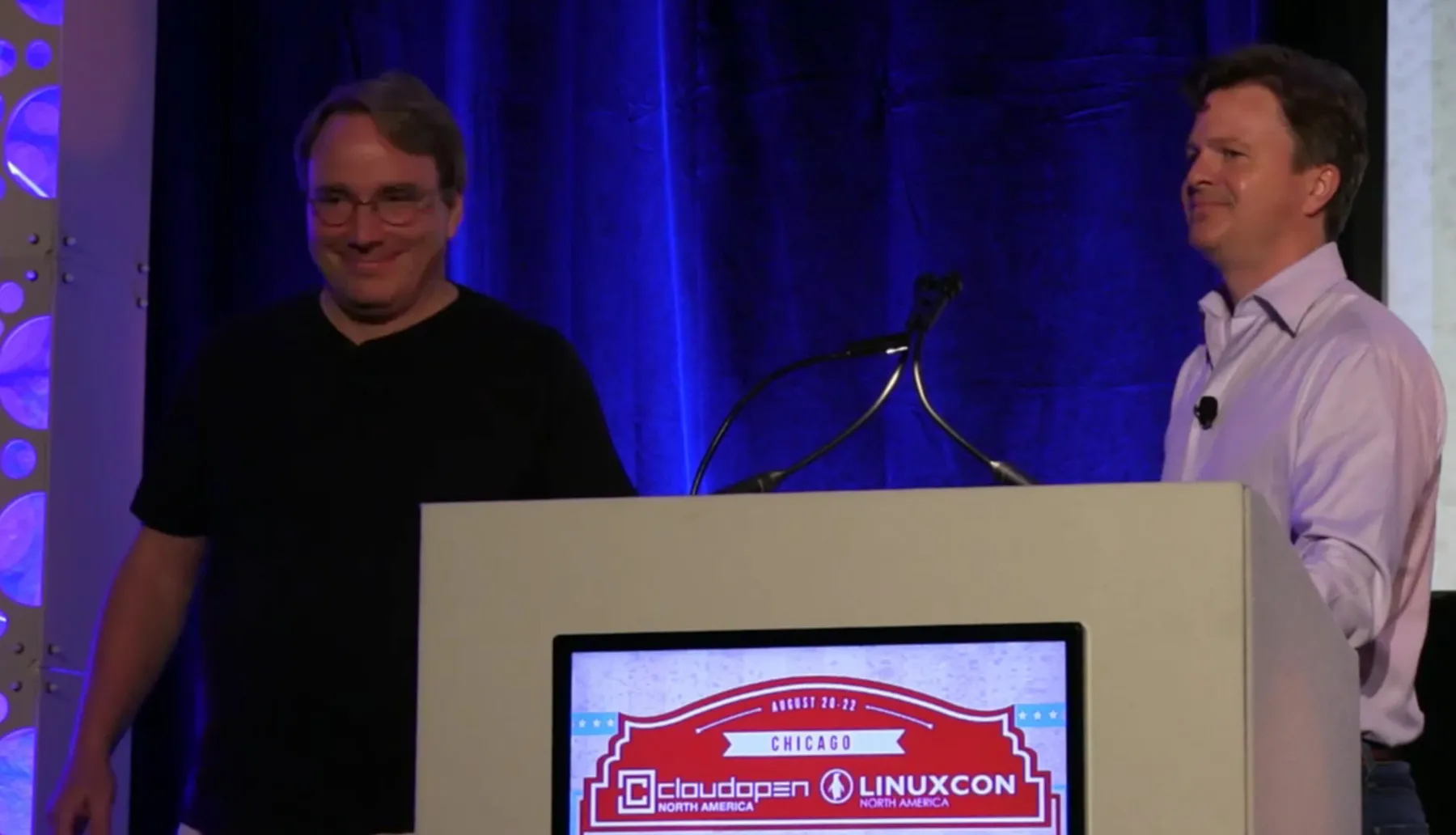- 15 Posts
- 60 Comments

 01·18 days ago
01·18 days agoThis banning culture of hate is ridiculous, you can disagree with someone, or even just ideas, but procuring “canceling” and “banning” to everything we don’t agree is crazy. This mono culture of hate really saddens me. But perhaps you’re right on your appreciation.
Some of these periodical rebirths of the debate about RMS, what are really looking for is discredit on the Free software, which is not the same as open source software. Drew is one of those, if I’m not mistaken because his blog is prolific, who believe free software has no hope, and the total triumph of open source, which in practice is correct, but ethically I’m not so sure. We should be aware of what’s behind all these attacks, and I believe it’s naive to think these attacks are just about RMS. Free software is ethical in the sense of the freedoms it seeks for the users, but that has no place on enterprises and corporations, open source has enjoyed a different fate because it’s not as strict on respecting those freedoms, which under enterprises and corporations are believed to be too restrictive and against their interests. And here we are over and over attacking the organizations (yes, the FSF is attacked not only because RMS is part of it, it was founded by him as well) and people defending those principles, because in the end our minds tend to disqualify everything way too easily, made easy with this banning culture of hate. I’ve read about how useless it is the FSF, and also about how useless it is the copyleft, and these recurrent intend to discredit the one who started all that of course discredits what came from him, one way or another. I wish I’m wrong on this, and that there was no pun intended towards free software…
The original post was most probably included into the wrong community for sure BTW, this is an open source community, so looking to empathize about free software stuff in here is not going to happen, even less for RMS.

 1·21 days ago
1·21 days agoPerhaps a misinterpretation from mojeek’s wiki:
Mojeek also displays significantly more individual entries in its search results than Google or Bing
Are you sure the phone it doesn’t work on is older than android 7? According to its f-droid jami URL its latest version as well as two more also documented there, they all work on android 7 or later.
I use LOS4uG, and I’m currently on android 14, so no need to build jami myself. Can you enable “unstable updates” on f-droid’s “expert mode”? Perhaps then you get latest app, and that one works better. Otherwise you can report an issue to the android client, and perhaps you get guidance from them. You can also use their forum to ask questions. I have filed issues only so far.
dino is a gnu+linux software, built with gtk4. If you’re using windows then the option is gajim, which in order to support omemo needs a plugin, though I can’t tell much more than that about it since I can’t even recall when was the last time I used windows.
That said, conversations has one important setting if syncing devices, which is indicating that the client won’t delete messages, the server will. Not sure why that is not the default, I guess statistically most xmpp users just make use of conversations and that’s it. The other important setting is configuring security for omemo always. Dino doesn’t need any setting for letting the server delete messages (it does when there’s no pending device to be synced) and doesn’t offer that option, and at the moment the user must be careful and set each conversation to be secured by omemo with no exceptions, but it’s already merged on master, and waiting for a new release, the option for omemo always, as on conversations.
That said, using xmpp doesn’t imply not having jami installed and keep trying it. Who knows, maybe you like it and it works fine for your purpose, and you decide for it to be you main messenger application.
I do !
works pretty well on both AOSP phones and gnu+linux desktops. Sad thing though is that I don’t like using flatpak, and I prefer distro native built software, and on Artix/Arch, there are times where the version between the distro version is slightly outdated with regards to the mobile version, and that makes things not to work. This is mainly an issue ever since jami decided to stop supporting the gtk client on the desktop, to me the qt experience have been sad. Not sure if someone has forked the gtk client, that would be great.
So I’m using xmpp as my main messenger, and keep trying jami when it works.
I really like the p2p approach from jami, and also the way they care for those with no huge batteries phones, given they added support for unified push notifications, which can be of course avoided if required for extra privacy. Given my use case, I can’t turn jami into my main messenger yet, but I keep trying, :) Meanwhile xmpp is there for me.

 32·23 days ago
32·23 days agoIs it something you have to trust they comply with what they say?
Nice that it has its own indexes, but according to this comparison its proprietary SW, running on UK servers without tor interface, and being backed or debated at least by UK politicians. We’re not talking about a not for profit organization either, and they do have individualized answers as well, so they have the mechanisms to individualize results to queries, meaning they keep information about your queries. So in the end, it boils down to the user trusting its service it seems.
Yes, meta search engines do not provide their own indexes, but searxNG is at least open source, you can select the search engines to use, included mojeek, and they serve as a front end preventing the underneath engine to track you (whether it’s against their public policy or not) as if you were to use such engine directly.

 0·28 days ago
0·28 days agoAnyone using NewsFlash? I really like it, specially to keep the seeds locally.

 0·1 month ago
0·1 month agoArkenfox user.js, or derivative broswers like Librewolf on the desktop and Mull on android are there for a reason. Firefox default settings are not the safer, although it has all the knobs to make it a much better experience.
There’s as well !monero!monero@lemmy.ml which I guess halted in favor of !monero!monero@monero.town?
If this is the case, I’m wondering why not locking the community, writing a message in the community information to go to the actual active one (!monero!monero@monero.town)…
If talking about non proprietary kernels’ drivers, such as linux, then again, profit is what regulates it. No wonder why now nvidia finally cares about linux, being the most used kernels behind the cloud, behind servers of whatever. Meaning, it’s not profitable not to support linux now a days for Nvidia.
The other fundamental factor is lock-in, which is abused by some big corps, such as MS.
But the profit idea es even wrong, but it’s what we have been educated with. For an OEM, providing FOSS drivers or FOSS FW doesn’t mean to have less profit, but somehow it’s interpreted as such. And there’s also our culture, backed by corps again, that tends to make us believe that everything profitable enough has to be corporate secret, and if not, others would take advantage of you business. That way of thinking really prevents for more FOSS adoption at the OEMs level. I don’t agree with it. It might be the presence or lack of some HW features might be inferred by the drivers/FW, but it doesn’t mean your competitors will know how exactly you provide such feature, and even less how to make it with the performance you do. And usually once released, you really want to show off your features, your innovation and so on, not keep it secret. So in general, really see no issue for OEMs not to offer drivers and FW as FOSS, even as free/libre SW.
I can imagine OEMs offering FOSS drivers and FW, but that not being as convenient for the major players in the market, since that would risk their position in the market. Just a thought…
Remember the lock-in mechanisms by the corps that feel being threatened if open sourcing dirvers… Some of which no longer say it out loud, but still think GPLed licences are a cancer…

 1·2 months ago
1·2 months agoI’m not aware of any, do you mind sharing anyone, better if not requiring account?
BTW I can easily find blogs about p2p solutions for whatever, but not about p2p blogging solutions…

 2·2 months ago
2·2 months agoThe issue with social networks is the account requirement. Even though decentralized, they still require servers with accounts. If you, to prevent not being able to access at some point included an email, and the server gets hacked, then there you go.
Perhaps is a mistake of mine, to think social networks are not anonymous enough. Maybe they are. But tracking mechanisms are so sophisticated now a days, than the need for an account make me think they won’t ever be. That’s why I excluded social networks. Perhaps it’s the only option as of Today though.
I have never bought the idea that free/libre SW in general is just not as easy, including GNU+Linux. I’ll leave out open source initially, and come back to it later, not because it doesn’t experience the same, but because corporate wide it doesn’t suffer the same fate. And linux itself is one of the most widely used kernel if not the most, it happens similarly to openssl, and so many other open source components. So I see no issue with linux adoption, I can’t think of any kernel more adopted than linux…
To me what has really affected free/libre SW is the monopolistic abuse of the corporations, plus their ambitions, and how in Today’s world, they have created the illusion that being a technologist is the same as being a technology consumer, which gets into the hearts of governments and education systems (more hurting, public education systems). Let me try some practical examples:
- Educations systems translate the need to educate students about technology into making them familiar with MS different SW, like the windows OS, MS outlook, MS office, MS project, MS visio. Even on the higher levels of education, colleges and universities prefer to use matlab over octave for example, even for just matrix operations scripting. Office covers spread sheets BTW, so people specialized on accounting know excel, but no other spread sheet.
- On public education systems, where one would be inclined to think it might get more interest on developing the expertise to not depend on proprietary SW only, it’s where corporate reach deeper offering “cheap” educational licences.
- From the prior two keep in mind that educational licenses from proprietary SW usually means future professional and people depending on proprietary SW in general. They are meant not to educate, but rather generate the future dependent population.
- Governments, whether local or nation wide, instead of adhering to open standards, for any kind of form submission, and even further to adhere to use of free and open source SW, to build the technical and competency expertise required to have a criteria about different technologies, about SW, infrastructure, DBs, and so, they prefer to require citizens to use non free or open source SW to create required forms, and prefer to pay for SW solutions which totally lock in the entire solution, usually coming from big corps, or other companies actually making use of SW and technologies coming from big corps.
- In their effort to discredit free/libre SW, the idea that the fundamental principles behind free/libre SW hurt the SW industry, or that are irrelevant to Today’s world or even worse than that, there were claims that the GPLed kernel was a great threat and GPLed SW a cancer. Now that open source usage has totally overcome free/libre SW, there are no such claims, but the damage is done. There’s nothing wrong with people wanting some compensation from corps, when developing SW, and thus not using free/libre licenses like GPL-3+ or AGPL, but in the end that eventually might hurt the users rights protected by such licenses, which such corps don’t really care that much (their profit has higher priority for sure), and experience shows that just because SW is licensed open source doesn’t guarantee any compensation for the development whatsoever, so if volunteering SW, doing so as open source is not even close to get every developer a decent income out of their contributions. Well, except for the big corps backed SW, linux included, but that’s not the majority of open source SW.
- The discredit of free/libre SW, which allowed the eventual creation of open source, is such that the banning of individuals ends up being an attack to the organizations behind it and even their principles and motivation.
- Moving away from the free/libre SW observations, even now with open source, from the big corps, which barely compensate the open source developers, complain about the open source supply chain, campaigning against not well maintained SW and such, there’s the famous image of a complex and heavy structure depending on a weak and deficient leg. Whatever truth around that figure, it of course hides the overall picture of the developer of such leg not ever being compensated (not to mention paid) for his library or SW component, and perhaps that’s one of the reasons the project got even abandoned, but now it’s easy to blame such situation when talking about FOSS in general.
Paid SW might be more intuitive to use at times, I can understand that. There are paid developers making the UIs more intuitive and attractive, in the end it needs to be bought or massively consumed to get earning through its use. But if you look deeper, perhaps it’s not just that free/libre or open alternatives are non intuitive at all, perhaps people gets used to that UI when attending basic or high school, or college/university. Perhaps even when exposed to mobile devices even when they can barely walk. Everything else, different in nature, will look alien to the future “technologists”…
On a sad (lacking hope) note, I don’t think there’s any indicator of things changing. My only hope is changes in educational systems, which are nowhere happening, and not the parents, as mentioned they are already convinced that using google, ms, apple, oracle or whatever prepare their kids for the future and will make them the technologists of the future.
On a funny note, I would answer the motivating question with: Linux is so good that it’s actually most probably the most used kernel world wide, :)
betterbird tray solution doesn’t work on wayland, given a bug on common code (affects both, Firefox, Thunderbird and derivatives). Just in case that’s one of the motivations of using betterbird. That by the way was the only feature that really made me look at betterbird, and as it didn’t work, I went back to TB. And if you’re wondering, birdtray doesn’t work on wayland, 😑.
Thunderbird is working on enabling exchange, and meanwhile you can combine it with TBSync plus its provider for exchange AcriveSync extensions. And given TB hadn’t care so far about tray, to at least avoid TB dying by mistake, you can also add Minimize on Close extension. Mail would still be IMap, so it’ll work as long as the outlook provider enables IMap support, but for the company I work it’s enabled. But such support is coming up on TB. Not sure if its solution would be 100% open source, but I hope it is, otherwise, I’m not sure if everyone will want to have a blob proprietary binary inside TB…
Yes SMGL is still active. You can try joining one of their channels. There are still people looking for source based distros, not sure while Gentoo is the only thing that pops up for them. I used it for some time, and it’s fantastic. Sadly having to build stuff takes too much time, particularly on old, and not performance oriented HW. They had support for binaries, and actually include a binaries grimoire, so you could install binaries that used to take too much time, like Firefox for example. Still it takes too much to keep a source based distro. And if you go all the way, then when changing parts of the building toolchain, like gcc, the recommendation was to build everything so that everything would be built with the more up to date toolchain, that was cool, since SMGL has tools for it, but those fancy stuff take as well a lot of time. There I learned 1st about ccache, hahaha.
Sooo fun, :)
Haven’t tried halloy, but it sounds cool, I wish rust build with shared libs in mind, instead of everything link statically, but it sounds interesting, I’ll see how it is compared to srain which is my current choice…










Ohh, do you have miniflux self hosted somewhere so it does the feeds collection, and then on newsflash you hook with the miniflux reader?
What I do to sync (I don’t read feeds on the phone) between desktops is to
rsyncthese 3 dirs:That so I don’t lose the feed subscriptions neither the history of what I have already looked at, neither what I’ve kept as starred (there are interesting feeds I want to keep). If miniflux had sort of a client, similar to newsFlash, but that set everything in miniflux rather than locally, so that no matter different desktops (even phones) will have the same starred kept feeds, and the whole history and the like on miniflux… There’s a python client, but I don’t know if it gets any closer to newsFlash. I guess having miniflux, one can hook to it through any web browser as well, but I really like newsFlash interface, hehe.
The sad thing is needing to somehow keep miniflux running somewhere, which is not feasible for me, and perhaps for others, but it’s interesting…